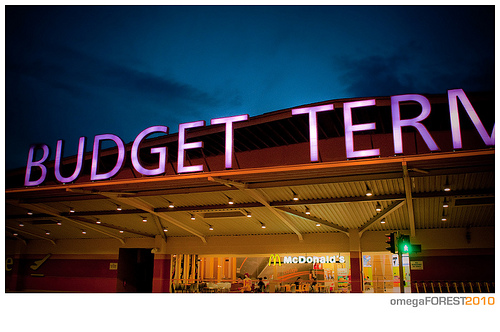Making Friends With the B
Times are tough for many thousands of people in the UK, but let’s face it: most of us are not facing true poverty on the level of those in many third-world nations. For that we can be grateful, and gratitude is actually an emotion that more people should cultivate. That is not to say that we should become complacent because of course, things could always get worse, but a little gratitude can certainly help get anyone through hard times. Having said that, there are many people who still haven’t quite come to terms with their own financial realities. Note that there’s a difference between gratitude and denial. The truth is that no matter how grateful you are for what you still have, it’s possible you won’t be able to hold on to it if you don’t learn how to manage your money. And in order to do that, you have to come to terms with the dreaded “B” word: Budget.
To many people, budgeting isn’t something that comes naturally, but it is absolutely essential if you are going to have the money you need to pay the bills and, it is hoped, to have something left over that will help you improve your quality of life. Perhaps you have shied away from making a budget up till now, feeling it’s too complicated or simply not necessary. However, if you consistently find yourself running out of money before you run out of month, you may benefit from the help of a payday loan.
To make a budget you have to assess your financial situation accurately. If you have only the vaguest notion of what you have coming in and what you have going out, that’s not good enough. You need to narrow it down as much as possible. Here are some basic steps.


Budget Terninal Singapore by omegaforest, on Flickr. This work is licensed under a Creative Commons Attribution-NonCommercial-NoDerivatives 4.0 International License.
Get Everybody Involved
Sit down as a couple or a family or a household. You all have a stake in the quality of life in your household so you should all be involved. Even very young children aren’t too young to learn the basics of budgeting.
Write Down What You Have Coming In on a Regular Basis
Include all of the money that you have coming into your household on a regular weekly or monthly basis. If money is in short supply, it may very well be easier to figure out weekly amounts. However, only include definite amounts of cash, not sporadic or irregular money that you cannot rely on, such as cash-back deals or extra money you may earn for online affiliate programs. If you are a freelancer whose monthly income varies depending upon the projects you have in-house, just calculate a reasonable monthly average.
Write Down What You Have Going Out on a Regular Basis
Again, use a weekly or monthly basis, as with your income. You should include all amounts of money such as rent or mortgage, insurance payments, fuel bills, debts, taxes and so forth.
Write Down Your Other Expenses
Now write down all of the other expenses that are not so easily defined because they happen only occasionally – such as clothing, medical bills, school trips and travel costs.

Pexels / Pixabay
Figure Out Your Food and Miscellaneous Bills
Don’t forget pet food; pets are part of the family and must be fed on a regular basis, just like the kids. It can be tricky to come up with a realistic amount of money for food bills and other occasional costs such as toiletries and cosmetics. But in general it is better to overestimate than underestimate, lest you find yourself short of resources.
Take Advantage of Available Tools
Financial software such as Money or some of the Quicken programs can make working out your finances a breeze. However, this type of software is becoming obsolete as more banks are now offering easy ways to keep track of your money online. But don’t become too reliant on machines and high-tech tools. You still need to know the basics of what’s coming in and what’s going out. And if all else fails, the old-fashioned pencil-and-paper method can help you on your way to a balanced household budget.
You can find abundant help online; there are numerous organizations, such as debt charities, that offer budgetary assistance and other financial tips for free. Help is all around you; you only have to ask.

